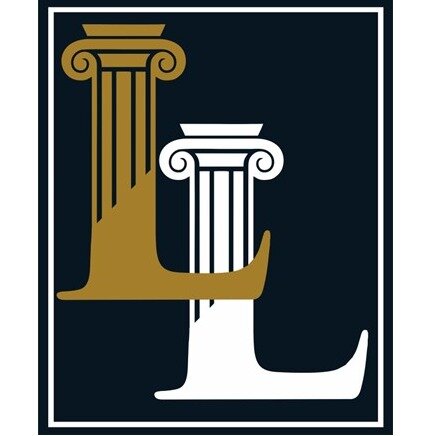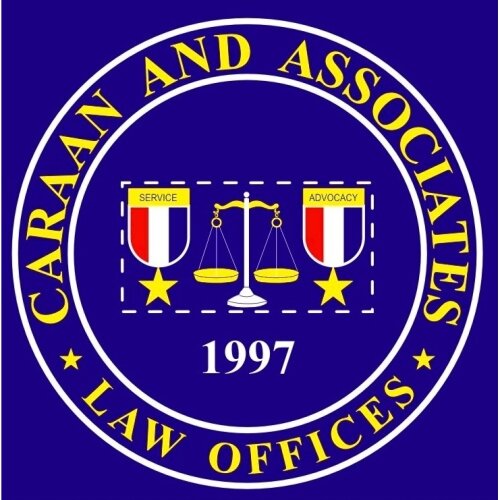Best Mining Law Lawyers in Manila
Share your needs with us, get contacted by law firms.
Free. Takes 2 min.
List of the best lawyers in Manila, Philippines
About Mining Law in Manila, Philippines
Mining Law in Manila, Philippines refers to the collection of laws, regulations, and policies that govern the exploration, extraction, processing, and commercialization of mineral resources within the country, especially in Metro Manila. Primarily grounded on the Philippine Mining Act of 1995 (Republic Act No. 7942), Mining Law sets the standards for responsible mining, protection of the environment, and the rights and obligations of all parties involved in the mining sector. The law aims to ensure both sustainable development and the equitable sharing of benefits from mineral resources, which are constitutionally owned by the State.
Why You May Need a Lawyer
Many individuals and businesses seek legal assistance for matters related to Mining Law in Manila. Some common situations include:
- Applying for and securing mining permits or mining rights
- Negotiating joint venture agreements, operating contracts, or mining leases
- Dealing with government agencies regarding compliance with regulations
- Addressing disputes with other mining companies, landowners, or indigenous communities
- Ensuring environmental compliance and handling environmental impact assessments
- Understanding and complying with taxation and royalty payments related to mining operations
- Responding to community concerns and legal actions involving mining activities
- Handling acquisition or transfer of mining claims or tenements
Engaging a lawyer with expertise in Mining Law helps safeguard your interests, ensures compliance with regulatory requirements, and minimizes legal risks.
Local Laws Overview
Mining operations in Manila are governed mainly by Republic Act No. 7942 or the Philippine Mining Act of 1995. This law declares that all mineral resources are owned by the State and provides the legal framework for the acquisition, exploration, development, utilization, and conservation of these resources. The Act lays down rules on how individuals and corporations can apply for mining rights, which include Exploration Permits, Mineral Agreements, and Financial or Technical Assistance Agreements (FTAA). The law also mandates strict environmental and social commitments, such as conducting Environmental Impact Assessments (EIA) and obtaining free and prior informed consent from indigenous communities when applicable.
Aside from national laws, there are also local ordinances and regulations that mining operators must observe, particularly in urbanized areas like Manila. These include environmental regulations, zoning laws, and ordinances restricting certain types of mining activities in highly urbanized or densely populated areas. Compliance with both national and local laws is essential for securing and maintaining mining rights.
Frequently Asked Questions
What is the Philippine Mining Act of 1995?
The Philippine Mining Act of 1995 or Republic Act No. 7942 is the primary law regulating mining in the country. It establishes the ownership, management, and operation of mining projects, and spells out the rights and responsibilities of stakeholders.
Who owns mineral resources in the Philippines?
All mineral resources in the Philippines are owned by the State. However, private parties may be granted rights to explore, develop, and utilize these resources through agreements and permits.
Can foreigners engage in mining activities in the Philippines?
Yes, but with limitations. Foreign equity is generally allowed up to 40 percent in mineral agreements. However, foreign investors may enter into Financial or Technical Assistance Agreements (FTAAs) for large-scale mining projects, which can allow for greater foreign participation subject to constitutional and statutory requirements.
Are there environmental requirements for mining projects?
Yes, all mining projects must undergo Environmental Impact Assessments (EIA) and secure an Environmental Compliance Certificate (ECC) before commencing operations. Operators must also implement environmental protection measures and rehabilitation plans.
How can local communities participate in mining decisions?
Affected communities, especially indigenous peoples, must be consulted before mining operations begin. Their Free and Prior Informed Consent (FPIC) is required for projects within ancestral domains.
What types of mining permits are available?
There are several types of permits, including Exploration Permits, Mineral Production Sharing Agreements (MPSA), Co-production Agreements, Joint Venture Agreements, and Financial or Technical Assistance Agreements (FTAA).
What royalties or taxes are payable by mining companies?
Mining companies are required to pay taxes, royalties, and fees such as excise taxes on minerals, value added tax, and royalties to indigenous cultural communities where applicable.
How can disputes regarding mining rights be resolved?
Disputes are generally resolved through administrative proceedings at the Mines and Geosciences Bureau or through the courts. Arbitration or mediation is also an option in some agreements.
Is small-scale mining governed by the same laws?
Small-scale mining is regulated under a different law - Republic Act No. 7076 or the People’s Small-Scale Mining Act. It sets separate guidelines for small-scale miners to ensure safety and environmental protection.
What happens if mining operations violate the law?
Violations can result in administrative sanctions, suspension or cancellation of permits, fines, as well as criminal and civil liabilities depending on the nature and gravity of the offense.
Additional Resources
If you need further information or assistance, consider reaching out to the following:
- Mines and Geosciences Bureau (MGB) - The main agency overseeing the mining sector
- Department of Environment and Natural Resources (DENR) - Supervises the enforcement of environmental and mining laws
- National Commission on Indigenous Peoples (NCIP) - For concerns involving ancestral lands and indigenous communities
- Legal Assistance NGOs - Some non-governmental organizations provide legal advice or advocacy on mining-related concerns
- Local Government Units in Manila - For information on local ordinances and business requirements related to mining
Next Steps
If you need legal help regarding Mining Law in Manila, consider the following steps:
- Identify your specific concern or goal, such as permit applications, contract drafting, or addressing a dispute
- Gather all relevant documents, including contracts, permits, correspondence, and any notices from regulatory authorities
- Contact a lawyer or law firm with experience in Mining Law, or consult government agencies such as the Mines and Geosciences Bureau for guidance
- Prepare your questions or issues in advance to make consultations more efficient
- Follow through with recommended legal actions or compliance requirements to safeguard your interests and avoid legal liabilities
A lawyer specialized in Mining Law can help you navigate complex requirements, ensure full compliance, and represent you effectively in any proceedings or negotiations.
Lawzana helps you find the best lawyers and law firms in Manila through a curated and pre-screened list of qualified legal professionals. Our platform offers rankings and detailed profiles of attorneys and law firms, allowing you to compare based on practice areas, including Mining Law, experience, and client feedback.
Each profile includes a description of the firm's areas of practice, client reviews, team members and partners, year of establishment, spoken languages, office locations, contact information, social media presence, and any published articles or resources. Most firms on our platform speak English and are experienced in both local and international legal matters.
Get a quote from top-rated law firms in Manila, Philippines — quickly, securely, and without unnecessary hassle.
Disclaimer:
The information provided on this page is for general informational purposes only and does not constitute legal advice. While we strive to ensure the accuracy and relevance of the content, legal information may change over time, and interpretations of the law can vary. You should always consult with a qualified legal professional for advice specific to your situation.
We disclaim all liability for actions taken or not taken based on the content of this page. If you believe any information is incorrect or outdated, please contact us, and we will review and update it where appropriate.















